I'm a wedding planner. Here are 5 trends that will be popular in 2022, and 3 that'll start to disappear.
Elisabeth Kramer

- I'm a wedding planner — I think some trends will be popular in 2022 and others may fade out.
- More couples are asking guests for proof of vaccination and having buffets for their wedding.
Multi-day festivities are having a moment.

I've seen an uptick in couples hosting wedding weekends with planned festivities for three or four days.
Themes have ranged from adult summer camp to festival but the true purpose seems to be making the most of having a bunch of loved ones gathered together in one place.
I don't totally know how people afford this and also manage their energy during what will be one of the most emotionally charged times of their lives — but the inquiries keep on coming.
It's a misconception that buffets disappeared because of COVID-19.
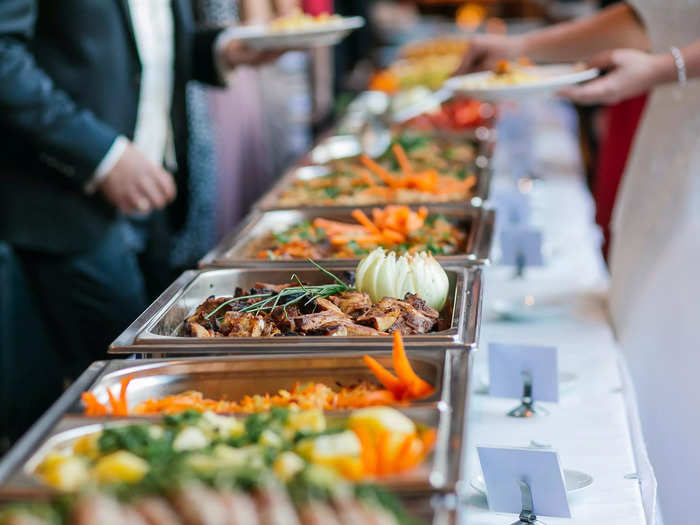
In my experience, many weddings were still hosting buffets at the height of the pandemic.
There were changes — often, plastic screens in front of the food and servers at each station instead of communal serving utensils — but buffets still existed.
I think it makes sense since buffets are often a more affordable option than table-side service.
More couples are asking for proof of vaccination and/or a negative COVID-19 test.
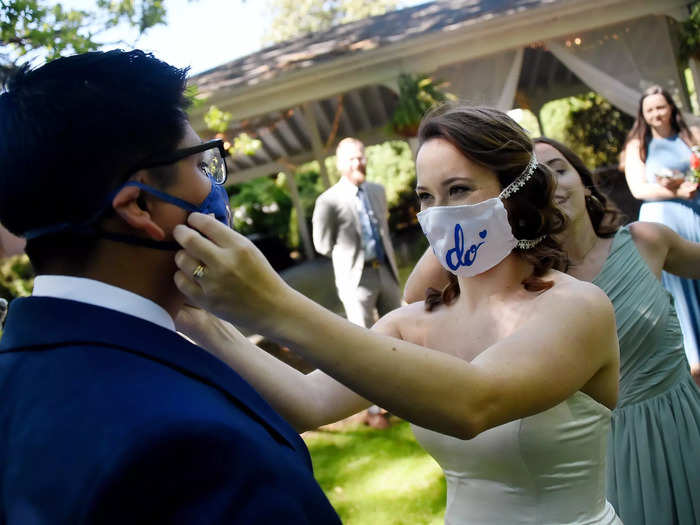
As we move into another year of the COVID-19 pandemic, more couples are setting what I call "a vaccine boundary."
They're also notably moving away from the honor system and toward asking for physical proof of vaccination and/or a negative COVID-19 test.
The trick is for couples to not expect their venue or vendor team to offer this service. Instead, I recommend a couple hire a third-party service like a private security guard to check vaccine cards or test results at the entrance to the wedding.
This option is affordable (in my area, $25 to $35 per guard per hour), removes the hassle of collecting and storing medical information ahead of a wedding, and allows your vendors to do what you actually hired them to do.
Expect to keep hearing buzz around the word "elopement."
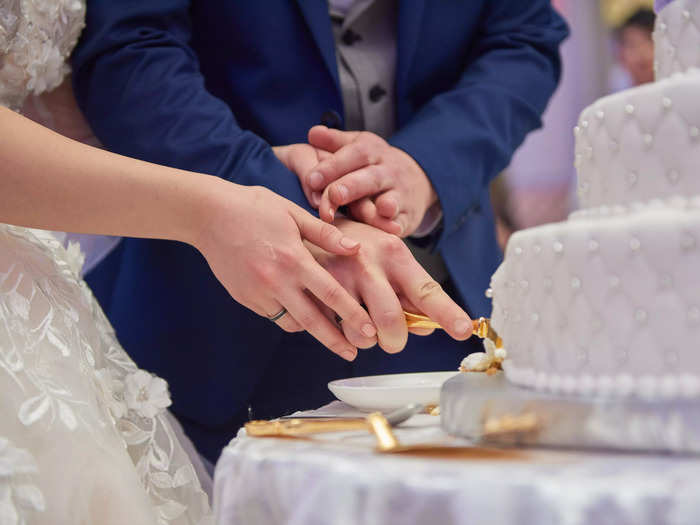
During 2020 and 2021, many couples and wedding vendors defaulted to the term "elopement" to describe any wedding that was even a touch "non-traditional."
Technically, it's a misuse of the term since "to elope" means to "run away secretly in order to get married, especially without parental consent" and nearly always, there's nothing secret about this particular wedding.
Still, expect to still see "elopement" and buzzier words like "minimony," "microwedding," and, heaven help us, "sequel wedding" in circulation as we continue to figure out what to call a celebration that honors a wedding that already legally started and/or a wedding that challenges the preconceived notions we have in our heads.
Weekday and non-summer weddings are getting their moment in the sun.
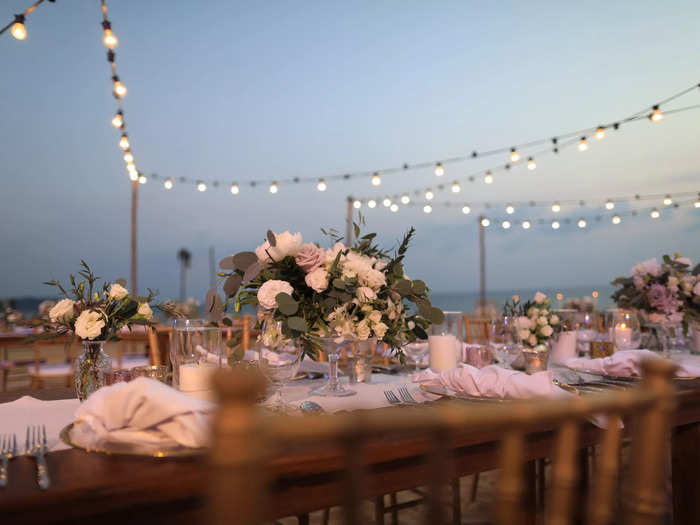
If the pandemic has taught us anything, it's that important moments can happen off schedule.
This is great news for weddings, as it means more couples are open to the idea of a wedding on a weekday and/or a wedding that's not in the summer or fall, typically the most popular times to get married.
Couples who choose to wed in the winter or spring or during a weekday will likely save money — and increase their chances of avoiding the negative downsides (like limited availability and price hikes) of the so-called wedding boom.
On the other hand, wedding vendors might be saying "no" more in 2022.

After two years of hardship, many wedding vendors have learned what they need in order to keep doing their jobs in a way that prioritizes their health, safety, and joy.
This is good news. Yay for humans taking care of themselves and their families! Unfortunately, couples aren't always prepared for what this means for their wedding.
Expect to hear the word "no" more often and for your vendor team to be clearer and more direct about what they need in order to best serve you.
Challenge yourself not to take this as an insult but as a necessary conversation so that everyone — you, your partner, your guests, and your vendors — can enjoy your wedding.
Livestreaming is still here, but it's not as hot as it was.
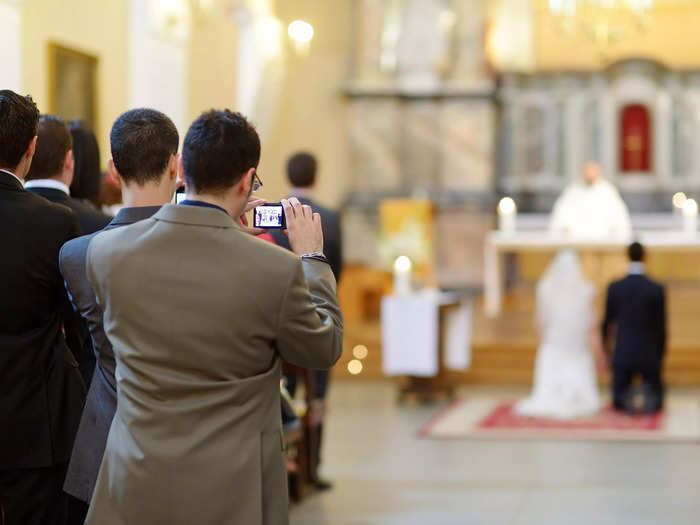
The number of weddings I've worked on that featured a livestream has definitely dropped off as 2021 has progressed.
If there is a livestream, it most often exclusively shows the ceremony, which is the actual thing people mostly care about.
Livestreams could potentially pick back up in 2022, but I think it depends on how many guests opt to attend a wedding in person and if those guests are VIPs.
For couples who have a loved one who's vulnerable to COVID-19 or is unvaccinated, a livestream might be just the ticket to having them attend the wedding without going in person.
I think the negative stigmas around smaller weddings will continue to become less prevalent.
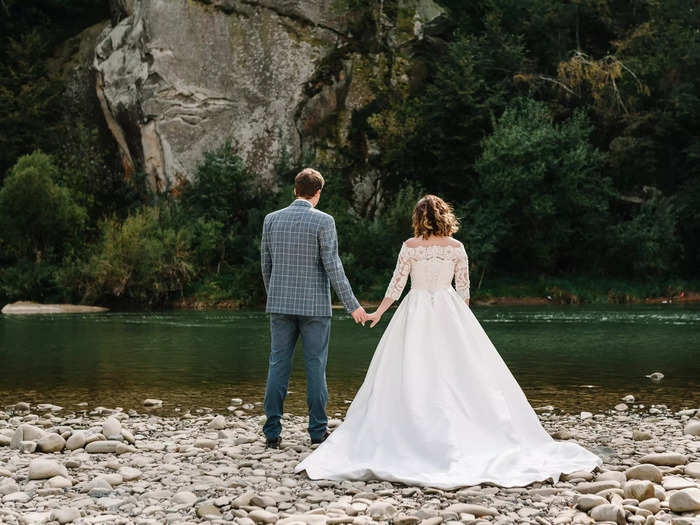
Before the pandemic, there was a commonly held, kind of nasty idea that couples who invited fewer guests were somehow lesser than couples who invited lots of people.
Although this stigma hasn't completely gone away, the pandemic has provided numerous examples of smaller weddings that had just as much, if not more, magic than blowout festivities.
The big wedding isn't gone but more couples are giving themselves permission to spend money on things they actually want, and that often means fewer guests.
READ MORE ARTICLES ON
Popular Right Now
Popular Keywords
Advertisement